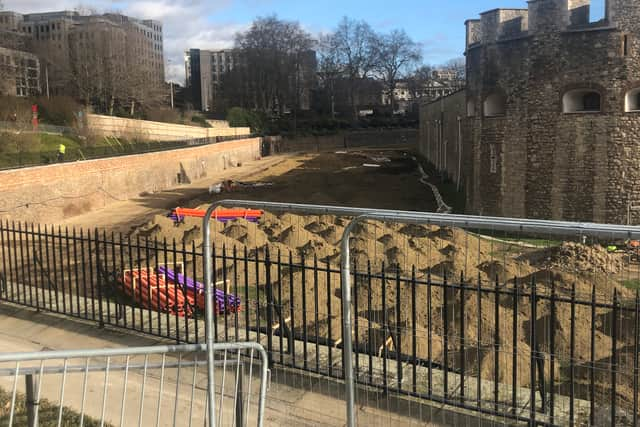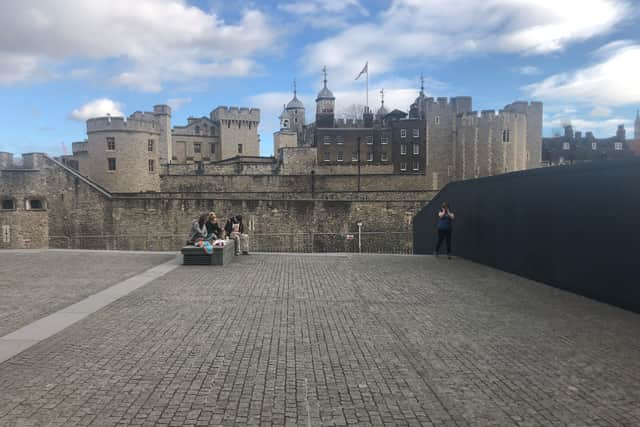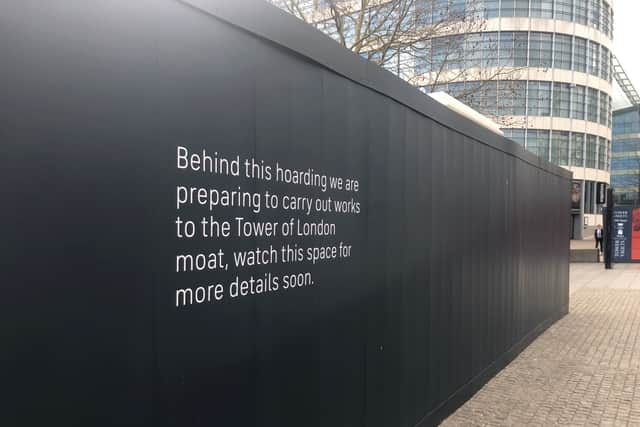Superbloom 2022: What are the building works at the Tower of London?
and live on Freeview channel 276
If you’ve strolled past the Tower of London recently, you might have found yourself wondering just what is going on at the historic castle.
Perched in a scenic spot overlooking the River Thames, the medieval stone structure has played a leading role in the story of the capital for centuries.


Advertisement
Hide AdAdvertisement
Hide AdAnd while the Tower has played host to famous names such as Anne Boleyn and Walter Raleigh, it has also been used over the years as a palace, prison and a battle-ready fortress.
Now visitors to the Tower may find themselves wondering what the scaffolding, clumps of earth and construction work mean for the landmark’s latest chapter.
What is Superbloom?
The Tower of London is set to welcome visitors to a special celebration of the Queen’s Platinum Jubilee Year.
The castle’s moat will be transformed into a “colourful, dramatic and vibrant field of flowers”.


Advertisement
Hide AdAdvertisement
Hide AdVisitors will even be able to walk along a winding pathway into the very centre of the floral display - to enjoy a sound installation, sculpture trail and experience the bees and butterflies.
When can I visit?
The attraction will be open from June 1, 2022, to September 18, 2022.
It coincides with the Platinum Jubilee year and makes the most of the summer season.


But if you can’t make it then, the moat will remain a permanent flowerfield, as a long-lasting legacy of the Jubilee festivities.
Advertisement
Hide AdAdvertisement
Hide AdThe new natural landscape will soon become a familiar part of the City of London - offering a perfect home to wildlife in the centre of the city.
What’s being done now?
Work on the moat transformation has already begun.
Builders are installing 10,800 metric tons of soil and creating a 2.4m drainage system.
Then, once the ground is fully prepared, gardeners will sow 20 million seeds across the entire moat.
Once the flowers bloom, the area will blossom into a welcoming habitat and a “green haven” for insects, birds and other pollinators.
